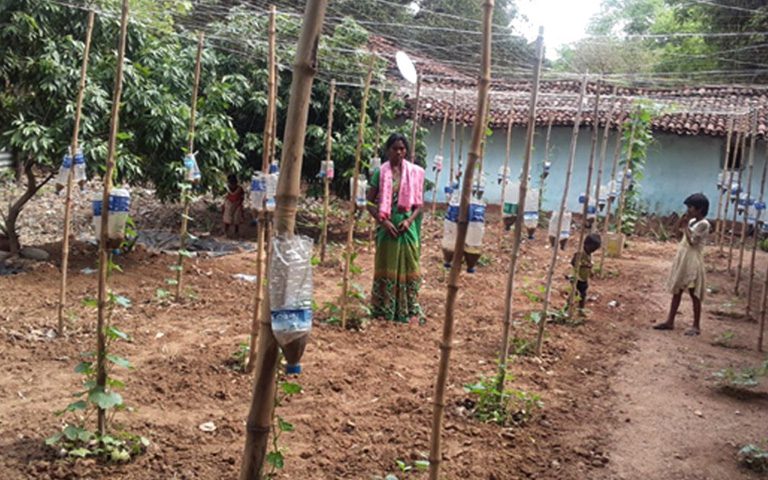 Climate Change Adaptation
Climate Change Adaptation
Our Philosophy
Reduce vulnerabilities and better adapt to climate change through sustainable pathways.
The country has been experiencing the impact of climate change over the last decades. As per the projections, climate change will further threaten food, nutritional security and water security, exacerbate inequality, displace a large chunk of the population due to climate hazards, will force people to migrate from rural to urban areas. By 2050, it is estimated that 140 million people could be forced to migrate internally.
In the current scenario, India through it’s Intended Nationally Determined Contributions (INDC) has put forward the target of reduction of emissions intensity of its GDP by 33 to 35 per cent by 2030 from 2005 level and has committed to invest in clean energy, adaptation and creation of an additional carbon sink as a key priority.
During IGSSS review meeting, in the year 2011, it was realized that Climate Change Adaption should be a separate vertical. It has been a critical area of work evolving within IGSSS to respond to developmental issues. The strategy is evolving, and currently, the focus is to build synergies between climate change adaptation, mitigation and sustainable development.
How we work:
Building Resilient Communities and Livelihood Systems: IGSSS strives to build climate-resilient communities who are better adapt to changing climate, and disasters. Our focus will be on establishing diverse and integrated agricultural systems with a focus on Climate-Smart Agriculture, soil and water conservation and management, natural resource management and sustainable technologies (clean energy, weather forecasting and agro advisory).
Promoting Environment Sustainability in Urban Settings: IGSSS well recognizes the implication of rapidly increasing urbanization and its contribution to greenhouse gas emission. Working on the vulnerability issues of urban settlement, IGSSS will concentrate on climate change mitigation through sustainable energy, increasing green spaces, waste management and integrating disaster risk reduction into urban planning through coalition building.
Youth Ambassador against Climate Change: Recognizing huge potential of youth, we plan to mobilize and unleash youth leadership for resilience building to changing climate. The initiative aims to train and support individuals at school, campus or community level to promote positive actions on the localized context of climate issues.
Research, Networking and Policy Engagement: Evidence building though conducting research, identifying areas of advocacy and highlighting good practices on the ground which will feed into other thematic areas. Networking with innovators, local, regional and national organizations, technical experts and research institutions, to bring innovative solutions.
Climate Change Projects
Related success stories
Related news & events




















